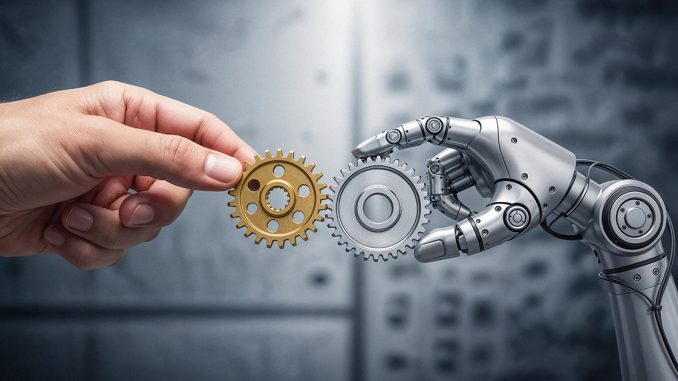
Automation is no longer a distant concept—it’s already transforming how industries operate, how people work, and how societies function. From factory robots assembling products with unmatched speed to AI-powered chatbots handling customer service around the clock, tasks that once relied entirely on human effort are now completed by machines and algorithms. As this shift accelerates, it brings both exciting opportunities and serious questions about the future of work and the stability of communities.
1. Understanding Automation
At its core, it means using technology to complete tasks with little or no human intervention. This can range from industrial robots streamlining assembly lines to software programs that handle complex data processing in seconds. Unlike traditional tools that simply assist workers, automation often takes over the entire process, allowing businesses to boost productivity and improve accuracy. As technology becomes more sophisticated, automation is moving beyond repetitive tasks and beginning to tackle jobs that require decision-making and problem-solving.
2. How It Automation Changing the Job Market
The workplace is evolving as automation reshapes job roles. In manufacturing, for example, robots are assembling products faster and with fewer errors than humans ever could. In logistics, automated systems plan efficient delivery routes, track shipments in real time, and maintain inventory levels without constant human oversight. Even the service sector is changing, as AI chatbots and virtual assistants manage routine inquiries, giving employees more time to focus on creative, strategic, or interpersonal tasks. While some jobs are disappearing, new positions—such as robotics maintenance specialists, AI developers, and data analysts—are emerging, creating a shift rather than a complete loss of employment.
3. Benefits of It
One of the most compelling reasons companies adopt automation is the boost in efficiency. Processes become faster, more reliable, and less costly. Workers also benefit when automation removes the need for dangerous, exhausting, or repetitive tasks, freeing them to concentrate on higher-value work that requires human creativity and judgment. On a broader scale, automation fuels innovation, accelerates product development, and improves service delivery, which can enhance overall quality of life.
4. Challenges and Concerns
Despite its advantages, automation brings significant challenges. Job displacement remains the biggest concern, especially in roles where tasks are highly routine. Furthermore, as technology evolves rapidly, workers face the pressure of constant upskilling to remain competitive. There are also ethical considerations—such as how automated decision-making might affect fairness, bias, and accountability. Addressing these concerns requires collaboration between governments, businesses, and communities to ensure that automation benefits are shared widely.
5. The Future of Work in an Automated World
Looking ahead, the impact of automation will depend largely on how society adapts. If businesses invest in training programs, governments support job transition initiatives, and workers remain open to learning new skills, automation could become a partner rather than a threat. The future may be one where human creativity and emotional intelligence work hand in hand with machine efficiency, resulting in a workforce that is both more productive and more innovative. In this vision, automation is not the end of jobs—it’s the beginning of a new era of work.
Final Thoughts: Automation is reshaping the world at an unprecedented pace. By embracing its potential while addressing its challenges head-on, society can create a balanced future where technology enhances human capability instead of replacing it.
